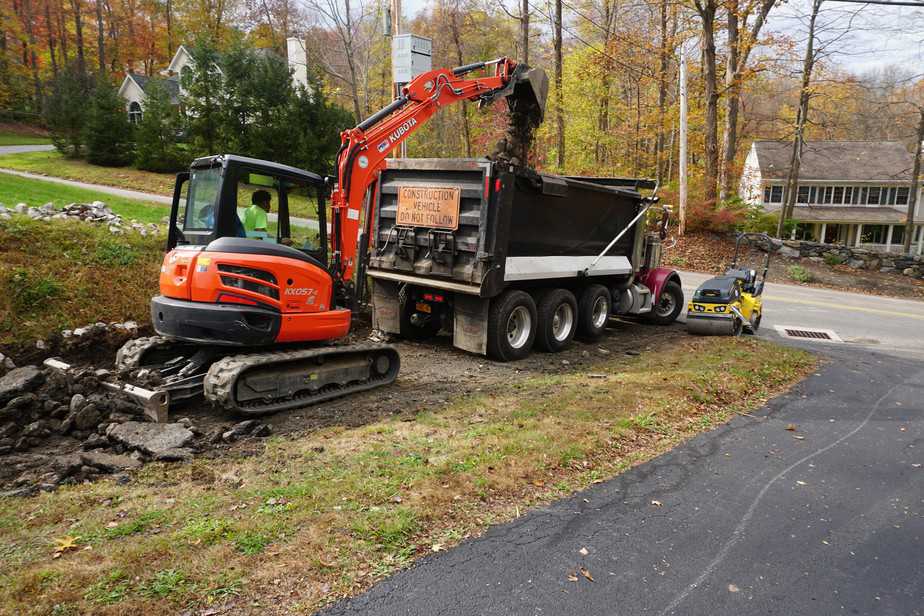Comprehensive Excavation Methods: Understanding the Fundamentals for Success
The mindful preparation, precise execution, and precise attention to information required in excavation tasks demand a detailed technique that includes different fundamental aspects. The true mastery exists not simply in recognizing these fundamentals but in seamlessly incorporating them to browse the complexities of excavation jobs with skill.
Understanding Excavation Project Preparation

Effective excavation jobs are developed on the structure of extensive and precise planning. The preliminary phase of any kind of excavation task is the planning stage, where critical decisions are made that can considerably affect the result of the project. Throughout this phase, it is important to collect all pertinent details regarding the site, consisting of topographical studies, dirt structure, and any possible threats that might exist. Understanding the task timeline, range, and spending plan restrictions is vital for producing a comprehensive excavation strategy that makes certain the job's success.
One trick element of excavation job planning is the development of a detailed timeline that describes the sequence of activities, milestones, and target dates. By very carefully considering all these variables throughout the preparation stage, excavation tasks can be implemented efficiently and properly, leading to effective outcomes - excavating ohio.
Soil Evaluation and Website Analysis
Carrying out detailed soil evaluation and website evaluation is a critical action in the prep work phase of any type of excavation task. Dirt evaluation includes identifying the composition, structure, and residential or commercial properties of the soil at the excavation website. This information is vital for understanding the dirt's bearing ability, moisture content, and potential for erosion, which are essential consider establishing the excavation methods and devices needed for the task.
Site examination exceeds soil analysis and encompasses a wider evaluation of the overall site problems. This analysis consists of identifying any type of prospective threats, such as below ground utilities, ecological worries, or unpredictable terrain, that can influence the excavation procedure. By completely evaluating the site, job managers can establish efficient excavation approaches that focus on security, effectiveness, and environmental security.
Utilizing advanced technologies like ground-penetrating radar, soil tasting, and drone surveys can improve the precision and efficiency of dirt evaluation and site examination. Spending time and resources in these preliminary actions can inevitably save time and prevent costly hold-ups or issues during the excavation procedure.
Devices Option and Usage
Effective excavation jobs rely greatly on strategic tools option and application to ensure ideal efficiency and productivity. Selecting the right devices for the work is vital in taking full advantage of efficiency and lessening downtime. Elements such as the type of soil, depth of excavation, and job scope play a significant duty in establishing one of the most suitable tools for the job at hand.

In enhancement to choosing the ideal equipment, appropriate usage is key to job success. Operators must be trained to handle the equipment safely and efficiently - lancaster trenching. Routine upkeep checks and timely repair work aid avoid malfunctions and make sure consistent performance throughout the task
Precaution and Laws Compliance
In the realm of excavation projects, prioritizing safety and security actions and conformity with policies is critical to ensuring a legally audio and safe and secure functional atmosphere. Precaution incorporate a variety of techniques, including conducting comprehensive website evaluations, implementing appropriate signage and obstacles, and supplying appropriate security training for all employees associated with the excavation procedure. Adherence to regulations, such as OSHA requirements in the USA, makes sure that the excavation project satisfies the needed requirements to safeguard employees, bystanders, and the surrounding atmosphere.

Tracking Development and Adjusting Approaches
Just how can forecast managers successfully track the development of excavation projects and try this out adjust their methods accordingly to maximize results? Monitoring development is vital for making certain that excavation projects remain on track and meet deadlines. Task managers can use numerous tools and techniques to track progress, such as everyday report card, normal site evaluations, and progressed tracking technologies like drones and general practitioners tracking systems. By continually checking the project's innovation, supervisors can recognize any prospective hold-ups or problems early on and take positive actions to address them.

Conclusion
Finally, understanding the principles of thorough excavation methods is vital for the success of any project. By comprehending project preparation, examining soil and website problems, choosing ideal devices, abiding with the original source security guidelines, and monitoring development, project supervisors can ensure a smooth and efficient excavation process. Applying these methods will bring about successful end results and lessen potential risks or setbacks throughout the excavation task.
The initial stage of any excavation job is the preparation phase, where vital choices are made that can substantially influence the outcome of the job. Comprehending the job range, budget, and timeline restraints is essential for developing an extensive excavation go to my site strategy that makes certain the job's success.
Exactly how can forecast supervisors successfully track the improvement of excavation projects and adapt their methods accordingly to enhance outcomes? By very closely checking progression and being willing to adapt strategies, project managers can enhance the general success of excavation projects.
By understanding project planning, examining dirt and website problems, picking suitable tools, complying with safety and security regulations, and keeping an eye on progress, job managers can ensure a smooth and efficient excavation procedure.